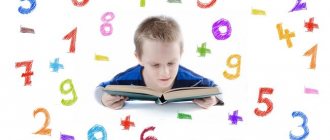Adolescence is a complex stage of life, which is accompanied by a variety of physical, psychological and social changes. It is during this period that hormonal changes in the body occur, and as a result of natural physiological processes, some mental changes occur. Some girls and boys experience adolescence without much stress or turmoil, but there are also those who develop mental disorders under the influence of unfavorable internal and external factors. Symptoms of depression can vary widely between children and adolescents. The main task of parents is to detect the problem in time and take all measures to correct it. Untreated teenage depression is highly treatable. In the future, the child can live a happy, fulfilling life.
Depression in a child (adolescent)
Depression in adolescents is characterized by depressed, melancholic mood, pessimism, behavioral disturbances, sleep problems, and in severe cases, suicidal tendencies.
Children aged 10 to 18 years old experience various emotional upheavals that arise against the background of conflicts with parents, classmates, teachers, dissatisfaction with their own appearance, low self-esteem, etc. The situation is aggravated by hormonal changes that affect the character of a teenager, making him uncontrollable, aggressive, excessively emotional.
Often, symptoms of depression in adolescents manifest themselves in changes in behavior and mood. The child simply loses motivation in life, becomes withdrawn, passive, and detached. Coming home from school, such children lock themselves in their room and can sit alone for hours. They refuse to communicate with parents, friends, classmates, and become conflicted. Some develop eating disorders, alcohol and drug addiction.
Depression is a mental illness that requires timely and proper treatment. In adolescents with unadvanced depression, the condition very often normalizes on its own, thanks to the support of parents, friends, and relatives. But if the symptoms do not go away for a long time and even intensify, it is necessary to seek medical help as soon as possible.
Classification
To classify depression, it is worth familiarizing yourself with the ICD-10 headings:
- F93.0 “anxiety disorder due to separation” - anxiety in relation to the person to whom the child is attached and from whom he was separated;
- F93.1 “phobic disorder” - fears that do not correspond to a certain age phase, pathological level of anxiety;
- F93.2 “social anxiety disorder” - problems in social interaction, a high level of shyness and tightness when communicating with strangers, but the absence of such indicators when interacting with family members;
- mixed variants of pathology - the presence of symptoms of all three categories.
Anxiety disorder of the first type is expressed in the child's concern about possible accidents associated with the person from whom the separation occurred. Reluctance to attend school due to fear of separation is typical. There is a fear of loneliness, nightmares about separation.
In social anxiety disorder, disruption of social interactions comes to the fore. The presence of distress and discomfort is noted in situations where the child involuntarily participates in social activities. He begins to cry, his speech is confused, and there is no spontaneous speech. Symptoms do not go away for at least 4 weeks. In this case, the disease does not progress as a gross disturbance of emotions or behavior, and there are no characteristic symptoms of PTSD or other diseases.
Causes of depression in teenagers
Depressive disorder in adolescents often occurs as a mental reaction to a stressful situation that he could not adequately accept and survive. The most common factors that contribute to the development of depression are:
- Hormonal changes. Most teenagers experience hormonal changes relatively calmly, without serious shocks. However, there are those in whom the maturation of the reproductive system is too violent and emotional. After 2–4 years, hormonal levels stabilize, but during this period emotional swings can cause the development of a serious mental disorder.
- Family conflicts. Children experience conflict situations with their parents very hard. Divorce is difficult for them, constant quarrels between adults, aggression, and alcoholism. It is also not easy for a child to hear criticism of himself or parents’ dissatisfaction associated with poor performance at school.
- Lack of girlfriends, friends. In adolescence, children try to find emotional contact with peers with whom they can share their experiences, thoughts, and disturbing events. But if a child has no friends and has not developed a trusting relationship with his parents, he simply has no one to vent to, especially since it is not always convenient to discuss certain topics with adults.
- Flaws in appearance. Teenagers spend a lot of time on their appearance, sometimes looking for flaws where there are none. Non-compliance with beauty standards imposed by the Internet and social networks greatly affects self-esteem. As a result, the child withdraws into himself, tries to look inconspicuous, and begins to experiment with diets, which can ultimately lead to mental disorders.
- Bullying. During adolescence, some children become uncontrollable, show unmotivated cruelty towards others, and begin to spread rot towards those who cannot stand up for themselves. If a child has been bullied at school, it can leave a deep imprint on his psyche.
- Increased loads. Some children do not master the school curriculum as well and quickly as their parents would like. Bad grades in the diary, problems with homework and constant dissatisfaction with parents are serious stress that not everyone can handle.
- Unrequited love or first unsuccessful sexual experience. Experiences of this nature take a lot of strength and energy from a teenager, but there is often nowhere to share their emotions and receive support in such situations.
- Frequent moves due to a forced change of educational institution. The child is greatly unsettled by frequent moves and team changes. He simply does not have time to adapt to new conditions, as a result of which he cannot establish relationships with classmates and teachers.
- Social status. Each teenager has his own position in the class and team. And if the status turns out to be not high enough, or even low, this has an extremely negative impact on personal self-esteem. Such children often become loners, which means that they have no one to share their experiences with, because adults are not always comfortable talking about their problems.
Make an appointment with a doctor
By clicking on the “Submit Application” button, I confirm my legal capacity and that my personal data can be stored and processed
Symptoms of Depression in Teens
Signs of depression in adolescents can be divided into 3 large groups:
- changes in mood;
- behavior change;
- physiological changes.
Based on this, the following symptoms of depressive disorder can be identified:
- Apathy. The child becomes absolutely indifferent to everything. He is not happy with his previous interests and hobbies; sometimes it becomes difficult to even get out of bed. Motivation and interest in learning disappear, and academic performance decreases.
- Psychosomatic pain. There are absolutely any localization: head, abdominal, muscle, joint.
- General depression, melancholy, which does not go away for a long time.
- Forgetfulness, absent-mindedness, decreased performance.
- Unmotivated anxiety, worries.
- Sleep problems. At night it is difficult for a child to fall asleep, and during the day he is overcome by drowsiness.
- Changes in appearance. The teenager stops caring about what he looks like. A child may walk around in dirty clothes for a long time, not comb his hair, and ignore basic hygiene procedures.
- Eating disorder. It manifests itself as a complete loss of appetite, anorexia, bulimia, or, on the contrary, problem eating, insatiable appetite.
- Interest in alcohol, cigarettes, drugs. If a child has older friends, they can buy alcohol, cigarettes, illegal substances and treat them to the teenager, who, in turn, will not refuse the offer in order to gain a certain status in the team.
- Irritability, causticity in communication. The child behaves aggressively with parents and teachers, refuses to listen, talk, withdraws into himself, and does bad things.
- Emotional swings.
- Talking about death, suicide. If a child becomes interested in the topic of death, suicide, and begins to constantly use the phrases “I don’t see the point in life,” “we’ll all die anyway,” “I can’t do this anymore,” parents should be wary and pay attention to this.
Diagnostics
If you suspect depression, you should visit a psychotherapist or psychiatrist for an accurate diagnosis. Diagnosis is based not only on symptoms visible to the average person.
When diagnosing, the doctor collects information that he takes directly from the child, his parents and teachers. The patient undergoes a brief psychological test. The Beck scale, Hamilton scales and Montgomery-Asberg tests are used.
Self-diagnosis is not effective. Diagnosing a child with depression is difficult even for specialists. The reasons are that the symptoms are very variable, unstable, and masked by somatic manifestations. Children's isolation and sadness are often falsely perceived as depression. And vice versa - depression is perceived as isolation and sadness. One or three symptoms are not a sign of disease.
If a child is irritable or sad, this does not mean depression. Manifestations also depend on the characterological characteristics of the individual and age.
Types of depression in teenagers
There are the following types of depression in adolescents:
- Reactive. Refers to a benign type of disorder, which often develops against the background of severe emotional shock.
- Melancholic. Characterized by a state of melancholy, depression, loss of motivation and interest in life. Against the background of these symptoms, problems with sleep and appetite arise.
- Bipolar disorder. Characterized by a change of active and passive phases. Mania manifests itself in the form of aggression, anger, and sudden mood swings.
- Dysthymia. This is a long-term mental disorder that can haunt a child for years. The teenager looks passive, lonely, and finds it difficult to concentrate on completing a specific task.
- Severe depression. It is characterized by a protracted course - from 6 to 9 months. The teenager is constantly depressed, irritated, and not interested in anything. The situation is sometimes aggravated by thoughts or attempts at suicide.
Complications
Without medical help, childhood depression progresses into adult forms of the disorder. Symptoms worsen, new manifestations arise. Disorders increasingly affect the somatic state. During adolescence, attention should be paid to suicidal behavior. Many depressed teens demonstrate intentions to harm or kill themselves. This manifests itself in alarming moments:
- in the conversation there is a noticeable lack of hope for the future and self-confidence;
- no interest in previously favorite activities;
- indifferent attitude towards oneself or towards parents;
- gross deviations in behavior;
- preparations for suicide - writing farewell notes, wills;
- auto-aggression - self-mutilation or involvement in life-threatening activities;
- passion for the topic of death;
- straightforward statements or threatening statements about intentions to commit suicide.
The only attack of depression suffered is a huge likelihood of recurrence of the disease.
What should parents do if their child is depressed?
In order to prevent the development of complications of teenage depression, including bipolar disorder or suicide, at the first signs of pathology, it is necessary to make an appointment with a specialist as soon as possible, who, after a series of tests and diagnostic procedures, will prescribe an individual treatment regimen.
How can parents help their teens get through difficult times? Here are some tips from psychologists:
- Try to always support your child in everything. A teenager should know that both parents will come to his aid and help him in any difficult situation. Make it clear that you are willing to provide the help and support needed.
- Limit custody, let the child know that you trust him and take into account his opinion.
- Listen and hear. It is important not only to listen to your son or daughter, but also to hear their problem. At the same time, do not criticize, condemn or impose your opinion. Try to talk in a comfortable environment, try to find out what exactly caused the anxiety and such results.
- Help build self-esteem. Parents must show the teenager how important and significant he is, explain that everyone, even the most successful person, has dark and light streaks, but in any case the situation will improve and everything will be fine.
- Properly organize your teenager’s leisure time. If a girl or boy is busy with an exciting activity, they will have no time left for bad thoughts. Ask your child if he wants to enroll in some kind of sports section, creative or scientific club. Respect your child’s decisions, allow him to choose his own hobby, even if it seems boring and uninteresting to you.
- Show by your own example how to confront difficult situations in life.
- Avoid high-pitched conversations, try to conflict less, look for as many points of contact as possible so that the child never feels abandoned and lonely.
Depression is a mental illness that requires timely and proper treatment. In adolescents with unadvanced depression, the condition very often normalizes on its own, thanks to the support of parents, friends, and relatives. But if the symptoms do not go away for a long time and even intensify, it is necessary to seek medical help as soon as possible.









